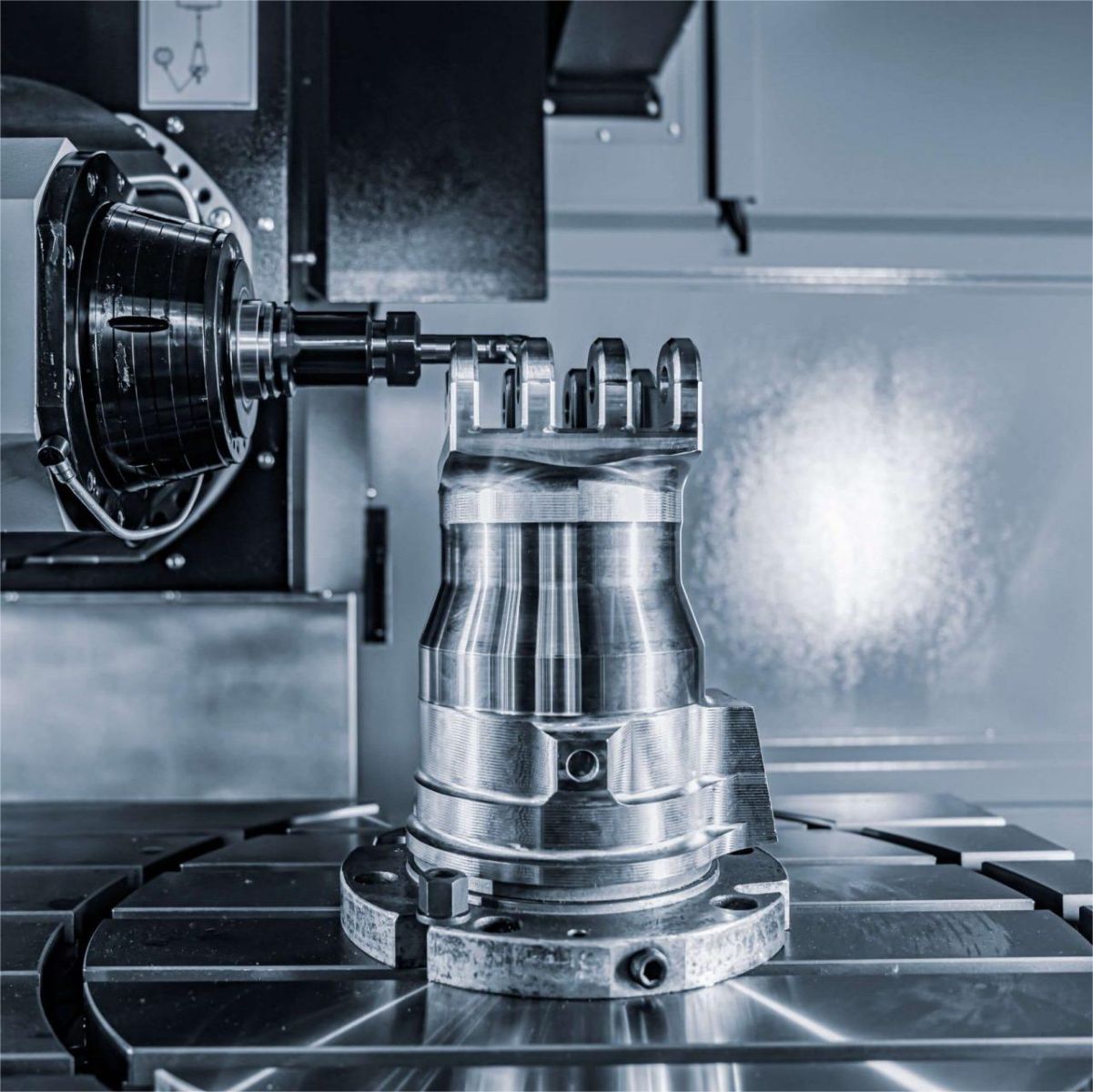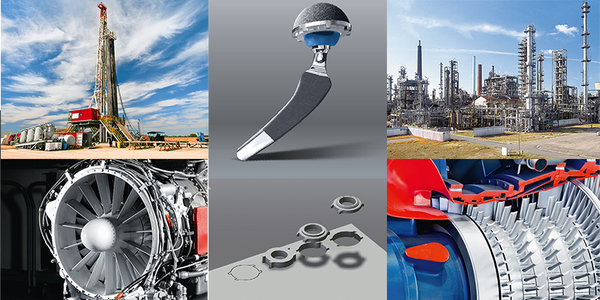Are you struggling to navigate the complex world of industry parts? From machinery components to automotive parts, understanding these essential pieces can be daunting. But fear not! In this ultimate guide, we will break down the intricacies of various industry parts, providing you with the knowledge and confidence to navigate this vast landscape. Whether you're a seasoned professional or just starting out, this guide will cover everything you need to know. We will explore the different types of industry parts, their functions, and how they fit into the larger picture. You will learn about the common terminology used in the industry, making it easier to communicate with suppliers and colleagues. No matter your field, this guide will help you understand the key components and accessories that are integral to your industry. From nuts and bolts to filters and gaskets, you will gain a comprehensive understanding of how these parts contribute to the smooth operation of machinery and vehicles. So, join us on this journey as we demystify the world of industry parts and equip you with the knowledge you need to excel in your field.
.jpg)
The Importance of Understanding Industry Parts
In today's fast-paced industrial landscape, having a comprehensive understanding of industry parts is crucial for success. Whether you're involved in manufacturing, automotive, construction, aerospace, electronics, or any other industry, knowing the various components and accessories used in your field can provide you with a competitive edge. In this blog post, we will delve into the significance of understanding industry parts, explore common types of industry parts, and discuss key factors to consider when selecting and sourcing these vital components.
Common Types of Industry Parts
- Machinery Components: Exploring the Key Components Used in Machinery
Machinery forms the backbone of many industries, from manufacturing to agriculture. Understanding the essential components of machinery, such as gears, bearings, motors, and hydraulic systems, is essential for optimizing performance, reducing downtime, and ensuring worker safety. The right components can enhance efficiency and extend the lifespan of your equipment, ultimately saving you time and money.
- Automotive Accessories: Understanding the Various Accessories Used in the Automotive Industry
The automotive industry is continually evolving, with a vast array of accessories and components that play critical roles in vehicle performance, safety, and aesthetics. From brake systems and engine parts to interior accessories like infotainment systems and seat covers, comprehending the range of automotive parts can help manufacturers create innovative and competitive products. Stay updated on the latest trends and technologies to stay ahead in this dynamic industry.
- Industry-Specific Parts: Examining Parts Used in Specific Industries
Different industries have their own unique needs and requirements, often necessitating specialized parts. Construction, aerospace, and electronics are just a few examples of sectors that rely on specific components tailored to their applications. For instance, aerospace requires lightweight and durable materials, while electronics demand miniature and precision components. Understanding these industry-specific parts is crucial for delivering high-quality products and services.
Industry-Specific Parts: Examining Parts Used in Construction, Aerospace, and Electronics
When it comes to industry-specific parts, each sector has its own unique set of components that are tailored to meet the specialized demands of their operations. In this section, we'll take a closer look at the parts used in three distinct industries: construction, aerospace, and electronics. Understanding these industry-specific components is crucial for professionals and businesses seeking to excel in their respective fields.

Construction Industry Parts
In the construction industry, efficiency, durability, and safety are paramount. Here are some of the key industry-specific parts:
-
Heavy Machinery Components: Construction sites rely on heavy machinery such as excavators, bulldozers, and cranes. Components like hydraulic cylinders, tracks, and buckets are essential for their operation.
-
Concrete and Masonry Accessories: Reinforcement bars (rebar), formwork, and concrete anchors are vital for creating sturdy structures. They ensure that buildings and infrastructure projects can withstand the test of time.
-
Safety Equipment: Construction workers depend on personal protective equipment (PPE) such as hard hats, steel-toed boots, and safety harnesses. These items safeguard workers from potential hazards on the job site.
-
Fasteners and Anchors: Nails, screws, bolts, and anchors are used extensively to secure building materials together. They play a critical role in maintaining the structural integrity of construction projects.
Aerospace Industry Parts
The aerospace industry demands precision, reliability, and innovation. Here are some of the industry-specific parts that make aviation and space exploration possible:
-
Aircraft Components: Aerospace engineers rely on specialized components like jet engines, landing gear, and avionics systems to ensure the safe and efficient operation of aircraft.
-
Composites and Advanced Materials: Lightweight materials such as carbon fiber composites and advanced alloys are essential for reducing weight and enhancing fuel efficiency in aircraft.
-
Instrumentation and Sensors: Aerospace instrumentation includes altimeters, gyroscopes, and sensors that provide critical data for navigation, control, and safety.
-
Spacecraft Components: In the realm of space exploration, specialized components like propulsion systems, satellite communication equipment, and heat shields are integral to mission success.
Electronics Industry Parts
The electronics industry is marked by rapid technological advancements. Here are some of the industry-specific parts that power our digital world:
-
Microprocessors and Integrated Circuits: These tiny but powerful components are the brains of electronic devices, from smartphones to computers and beyond.
-
Printed Circuit Boards (PCBs): PCBs serve as the foundation for electronic devices, providing the necessary connections between components.
-
Semiconductor Devices: Transistors, diodes, and capacitors are the building blocks of electronic circuits, enabling signal processing, amplification, and control.
-
Connectors and Cables: These parts facilitate the interconnection of various electronic components, ensuring seamless data transfer and power distribution.
Understanding these industry-specific parts is essential for professionals in construction, aerospace, and electronics. It allows them to make informed decisions, innovate, and contribute to the advancement of their respective industries. Whether you're constructing a skyscraper, designing the next generation of aircraft, or developing cutting-edge electronics, the right industry-specific parts are the building blocks of success.

Factors to Consider When Selecting Industry Parts
When it comes to selecting industry parts, several factors must be taken into account to ensure that you make the right choices:
-
Compatibility: Ensure that the selected parts are compatible with your existing equipment or systems.
-
Quality: Quality is paramount. Choose parts that meet industry standards and are manufactured by reputable suppliers.
-
Cost-Effectiveness: Consider the total cost of ownership, including maintenance and operational costs, when evaluating parts.
-
Reliability: Reliability is critical for minimizing downtime and maximizing productivity. Opt for parts with a proven track record.
-
Environmental Impact: Be mindful of sustainability and environmental considerations when selecting parts.
-
Warranty and Support: Check for warranties and the availability of support services from the supplier.
Tips for Sourcing and Purchasing Industry Parts
Sourcing and purchasing industry parts can be a complex process, but with the following tips, you can streamline the process and make informed decisions:
-
Research Suppliers: Thoroughly research potential suppliers, their reputation, and their track record.
-
Get Multiple Quotes: Obtain quotes from multiple suppliers to ensure competitive pricing.
-
Consider Lead Times: Factor in lead times when planning your purchases to avoid delays in production.
-
Review Specifications: Carefully review product specifications to ensure they meet your requirements.
-
Establish Relationships: Building long-term relationships with reliable suppliers can lead to better service and pricing in the future.
Industry Parts Suppliers: Finding Reliable and Reputable Suppliers
Finding reliable industry parts suppliers is essential for ensuring the quality and availability of the components you need. Look for suppliers with the following characteristics:
-
Reputation: Choose suppliers with a solid reputation for delivering quality products and services.
-
Certifications: Check if the supplier is certified to meet industry standards and regulations.
-
Inventory: Ensure the supplier maintains adequate inventory levels to meet your demands.
-
Customer Support: Evaluate their customer support capabilities, including responsiveness and technical assistance.
-
References: Seek references or testimonials from other businesses that have worked with the supplier.

Conclusion: The Importance of Continuous Learning and Staying Updated with Industry Parts
In conclusion, understanding industry parts is not just a fundamental aspect of running a successful business; it's a competitive advantage. Whether you're in machinery, automotive, or a specialized industry, staying informed about the components and accessories that drive your sector is crucial. By considering the factors mentioned and following best practices for sourcing and purchasing, you can ensure that your business remains efficient, cost-effective, and competitive in an ever-evolving industrial landscape.
Continuous learning and staying updated with industry parts are ongoing processes that can lead to innovation, improved product quality, and enhanced customer satisfaction. Embrace the knowledge and expertise required to excel in your field, and your business will thrive in an increasingly competitive market. Remember that your choice of suppliers can significantly impact your success, so invest time and effort into building strong partnerships with reliable industry parts suppliers to ensure your business's long-term prosperity.

FAQ 1: Why is Understanding Industry Parts Important for YICHOU's Manufacturing?
Keywords: YICHOU, Understanding Industry Parts, Manufacturing
Answer: Understanding industry parts is crucial for YICHOU's manufacturing because it ensures product quality, reduces production costs, and enhances our competitiveness in the market. This knowledge empowers us to make informed decisions when selecting components and sourcing from suppliers, ultimately driving our manufacturing success.
FAQ 2: How Does YICHOU Ensure the Quality of Industry Parts in its Machinery Manufacturing Process?
Keywords: YICHOU, Quality Assurance, Industry Parts, Machinery Manufacturing
Answer: YICHOU prioritizes quality assurance by thoroughly researching industry parts, working with reputable suppliers, and implementing rigorous quality control measures. This meticulous approach guarantees the reliability and performance of our machinery, leading to customer satisfaction.
FAQ 3: What Industry-Specific Parts Does YICHOU Utilize in its Manufacturing Processes?
Keywords: YICHOU, Industry-Specific Parts, Manufacturing Processes
Answer: YICHOU leverages a range of industry-specific parts tailored to our manufacturing processes. These include construction materials, aerospace-grade components, and electronic circuitry, allowing us to meet the unique needs of various industries and deliver exceptional products.
FAQ 4: How Does YICHOU Choose Reliable Suppliers for Industry Parts Sourcing?
Keywords: YICHOU, Reliable Suppliers, Industry Parts Sourcing
Answer: YICHOU selects reliable suppliers by considering their reputation, certifications, and adherence to quality standards. We also rely on industry associations and online marketplaces to identify trustworthy partners, ensuring a steady supply of high-quality components.
FAQ 5: How Does YICHOU Stay Updated with Industry Parts Trends and Innovations?
Keywords: YICHOU, Industry Parts Trends, Innovations
Answer: YICHOU is committed to continuous learning and staying updated with industry parts trends and innovations. We regularly engage with industry associations, attend trade shows, and collaborate with experts to remain at the forefront of advancements. This proactive approach empowers us to offer cutting-edge solutions to our clients.
GET QUOTE
- Visit our website: https://www.nbyichou.com/
- Email us: [email protected]
- Call us/whatsapp: +86 13355741031
- Chat with us: Live chat support available on our website